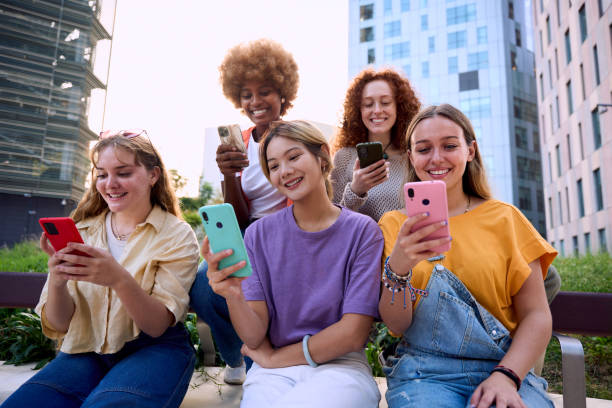If there’s one generation that has turned psychology into everyday conversation, it’s Gen Z. Whether it’s through viral TikToks, Instagram reels, or podcasts, concepts that once belonged to classrooms and textbooks now live in memes and Twitter threads. Attachment styles, cognitive biases, shadow work, and “dopamine detoxes” are no longer just academic jargon—they are part of how young people explain their relationships, their struggles, and even their sense of identity.
But why has psychology captured the imagination of this generation more than ever before? The answer is layered. Gen Z has grown up in a world shaped by digital technology, mental health awareness, and constant social connection. They are both highly stressed and deeply curious about themselves and others. They don’t just want to survive—they want to understand why they feel what they feel. And pop-psychology, when communicated in engaging ways, provides that language.
This article explores the most popular psychological theories and concepts embraced by Gen Z—not in dry academic tones, but in a way that honors their emotional resonance and cultural impact. These are ideas that speak to identity, relationships, motivation, and the quest for meaning in a rapidly changing world.
Attachment Theory: The Blueprint for Relationships
If you’ve ever scrolled through social media and seen someone declare, “I’m anxious-avoidant, what about you?” you’ve stumbled into the world of attachment theory. Originally developed by John Bowlby and Mary Ainsworth, attachment theory explains how the bonds we form in childhood shape the way we connect with others later in life.
There are four main attachment styles: secure, anxious, avoidant, and disorganized. Gen Z loves this framework because it feels personal. It’s not just abstract psychology—it’s about why someone texts back instantly or takes three days, why they crave closeness or fear it, why love feels so safe or so terrifying.
In a world where dating often unfolds through apps and texting, attachment styles become a shorthand for self-awareness. They provide explanations for heartbreak, ghosting, and the emotional rollercoaster of modern relationships. For many in Gen Z, learning about attachment styles is not just about romance—it’s about healing childhood wounds and rewriting the script for healthier connections.
Cognitive Biases: The Invisible Forces Behind Our Choices
From TikTok trends to viral debates, cognitive biases are everywhere. These are the mental shortcuts our brains use to process information quickly, often at the expense of accuracy. Gen Z thrives on identifying them because they reveal how irrational yet predictably human we all are.
Take confirmation bias—the tendency to seek information that confirms what we already believe. In an age of algorithms, echo chambers, and endless scrolling, recognizing this bias feels empowering. Or consider the spotlight effect—the belief that everyone is noticing your every flaw when, in reality, most people are too busy worrying about themselves. This resonates deeply in a generation raised on social media, where self-consciousness is amplified by likes, comments, and views.
By learning about biases, Gen Z doesn’t just laugh at the quirks of the brain—they use the knowledge as a shield. It helps them navigate misinformation, cope with anxiety, and make decisions in a world overloaded with information.
Maslow’s Hierarchy of Needs: A Pyramid for the Digital Age
Abraham Maslow’s hierarchy of needs is one of the most famous psychological theories, and it has found new life in Gen Z culture. The pyramid—ranging from basic physiological needs to self-actualization—offers a roadmap for human motivation.
Gen Z often reinterprets this theory through a modern lens. For example, Wi-Fi and phone battery sometimes get jokingly placed at the bottom of the pyramid, symbolizing how digital connection feels as essential as food and water. But beyond the humor, there is seriousness: this generation is deeply aware of how unmet needs—whether financial stability, safety, belonging, or mental health—can block growth.
The pyramid gives structure to the often overwhelming task of “figuring life out.” It explains why pursuing dreams feels impossible under crushing student debt or why personal growth feels out of reach without supportive friendships. In a sense, Maslow’s pyramid becomes a tool for self-compassion: a reminder that unmet needs are not personal failings but part of a universal human hierarchy.
Cognitive Dissonance: When Beliefs and Actions Clash
Gen Z is highly attuned to authenticity, both in themselves and others. They value aligning beliefs with actions, and that’s where cognitive dissonance theory comes in. Developed by Leon Festinger, this theory describes the discomfort we feel when our actions don’t match our values or beliefs.
Think about the climate-conscious student who loves fashion but buys fast fashion anyway, or the advocate for mental health who skips therapy due to stigma or cost. That tension—the inner voice whispering “this doesn’t add up”—is cognitive dissonance at work.
Gen Z finds this concept powerful because it explains much of the emotional discomfort of modern life. It also provides motivation for change. Understanding cognitive dissonance means recognizing that unease as a signal, a call to adjust behavior or beliefs until they align. In a world where branding, influencers, and curated identities dominate, cognitive dissonance is not just academic—it’s deeply personal.
Flow State: The Psychology of Being Fully Alive
Amid the chaos of constant notifications and endless multitasking, Gen Z longs for focus. That’s why Mihaly Csikszentmihalyi’s concept of “flow” has captured their imagination. Flow is the state of being so immersed in an activity that time seems to vanish, and effort feels effortless.
Gamers know flow when they lose track of hours in a perfectly challenging level. Artists feel it when the brush moves almost by itself. Students catch glimpses of it when studying becomes engaging instead of exhausting. Flow is not just productivity—it is joy, presence, and creativity at its peak.
For Gen Z, often criticized as “distracted,” the idea of flow offers hope. It suggests that deep focus is still possible, and even more, that it is the key to fulfillment. Whether through mindfulness, hobbies, or meaningful work, flow represents a counterbalance to the fragmented attention of digital life.
The Shadow Self: Embracing Hidden Parts of Ourselves
Carl Jung’s concept of the “shadow” has become a favorite in Gen Z’s psychology-infused self-help culture. The shadow is the part of ourselves we deny, suppress, or hide because it feels unacceptable—anger, envy, selfishness, fear.
Rather than rejecting the shadow, Jung believed in integrating it, acknowledging that wholeness comes from embracing all parts of ourselves. On platforms like TikTok, “shadow work” journaling prompts and reflections invite young people to confront their hidden feelings instead of masking them.
This resonates with Gen Z’s emphasis on authenticity and mental health. They don’t want to pretend to be perfect; they want to heal. The shadow provides a language for self-acceptance, a way to transform shame into growth. For a generation navigating identity crises, social comparison, and pressure to perform, shadow work feels like liberation.
The Dopamine Loop: Understanding Pleasure and Motivation
Few scientific ideas have captured Gen Z like dopamine. Often referred to as the “pleasure chemical” (though more accurately a motivator), dopamine plays a role in reward, habit, and addiction. In an era of infinite scrolling, video games, and streaming binges, understanding dopamine feels like reclaiming control.
The concept of “dopamine detoxes”—taking breaks from overstimulating activities—has gone viral. Though simplified in practice, the idea reflects a deeper truth: our brains are wired for reward, but modern technology can hijack those circuits.
By learning about dopamine, Gen Z reclaims agency. They frame it not as a villain but as a signal, teaching them how habits are formed and how to create healthier cycles of motivation. For a generation often accused of being “addicted to screens,” this knowledge feels empowering rather than shaming.
Social Comparison Theory: The Trap of Measuring Ourselves
In a world dominated by Instagram feeds and TikTok trends, Leon Festinger’s social comparison theory is more relevant than ever. The theory states that people evaluate themselves by comparing to others, which can lead to either motivation or despair.
Gen Z knows this intimately. The endless parade of curated bodies, lifestyles, and successes creates constant pressure. But awareness of the theory gives them power. By naming the trap of upward comparison (envying those “above” us), they can shift toward healthier downward or lateral comparisons—or step outside the cycle altogether.
Social comparison theory doesn’t eliminate insecurity, but it offers a lens through which to understand it. In that understanding lies a possibility for freedom.
Impostor Syndrome: The Secret Fear of Not Being Enough
Though not an official “theory” in the strictest academic sense, impostor syndrome is one of the most widely recognized psychological concepts among Gen Z. It describes the persistent feeling of being a fraud, of doubting accomplishments despite evidence of competence.
From students in competitive universities to young professionals entering the workforce, many Gen Z individuals confess to feeling like they don’t belong. Social media amplifies this by showcasing highlight reels of others’ successes.
The language of impostor syndrome provides comfort. It says, “You are not alone. This fear has a name, and it’s common.” By normalizing the experience, it allows young people to separate feelings from facts and to build resilience in the face of self-doubt.
Why These Theories Matter to Gen Z
It is tempting to dismiss pop-psychology as oversimplified or trendy, but its popularity reveals something profound: a generation striving for self-understanding. These concepts resonate not just because they are catchy, but because they provide tools for navigating a world of complexity, uncertainty, and rapid change.
Gen Z’s embrace of psychology reflects both vulnerability and strength. They are a generation willing to talk about mental health, to share their struggles, and to seek knowledge as a path to healing. They don’t just want labels—they want insight, and ultimately, growth.
The Future of Pop-Psychology
The fascination with psychology will only deepen as Gen Z matures. Already, they are influencing therapy culture, workplace dynamics, and even how education addresses mental health. Some theories may evolve, others may be challenged, and new ideas will emerge. But the core impulse—the desire to understand the self and others—will remain.
Science will continue to refine these concepts, separating myths from truths. But the emotional resonance of psychology will endure, because it speaks to the deepest human question: “Who am I, and why do I feel this way?”
Gen Z’s favorite psychological theories may be popularized on TikTok, but beneath the hashtags and soundbites lies something timeless: the human quest for meaning.
Conclusion: Psychology as a Language of Connection
To ask why Gen Z is drawn to these theories is to see a generation hungry for tools of connection—connection to themselves, to each other, and to the wider world. Pop-psychology gives them words for feelings that might otherwise remain buried, frameworks for struggles that might otherwise feel isolating.
In the end, psychology is more than theories—it is the mirror Gen Z holds up to their lives, the compass they use to navigate uncertainty, and the bridge between inner experience and shared understanding. And in that, psychology is not just science—it is culture, healing, and hope.






